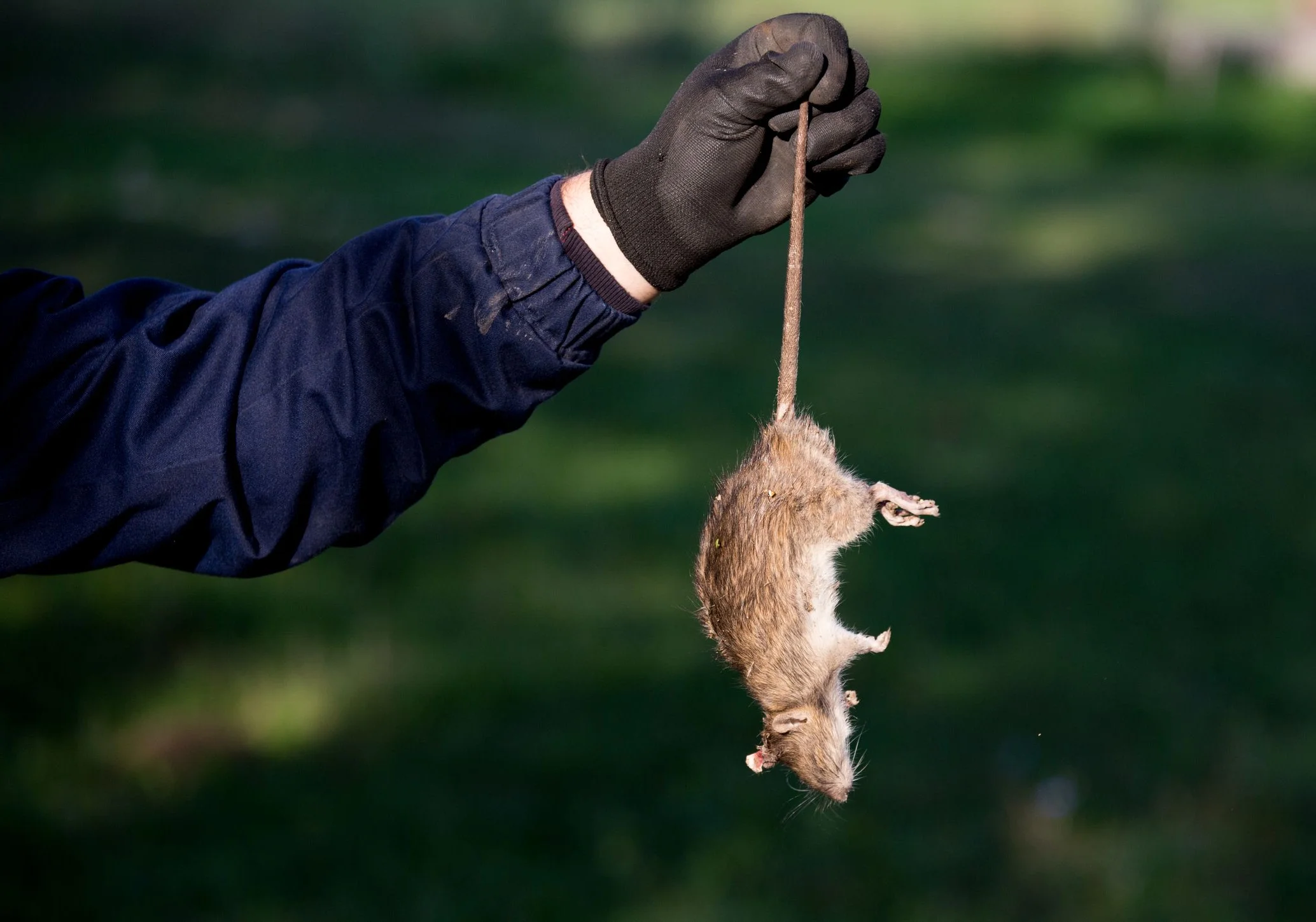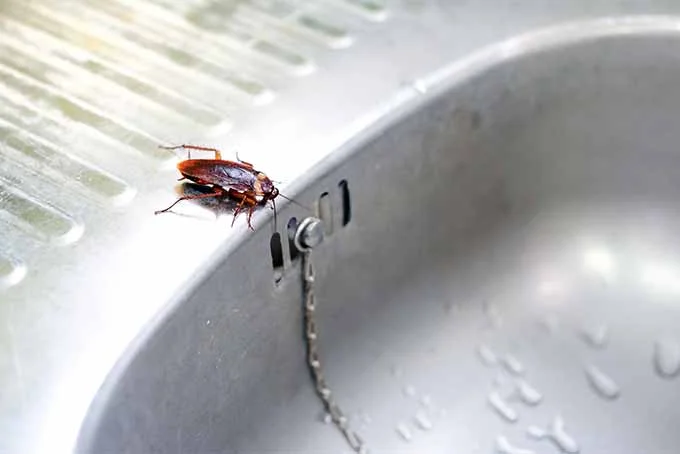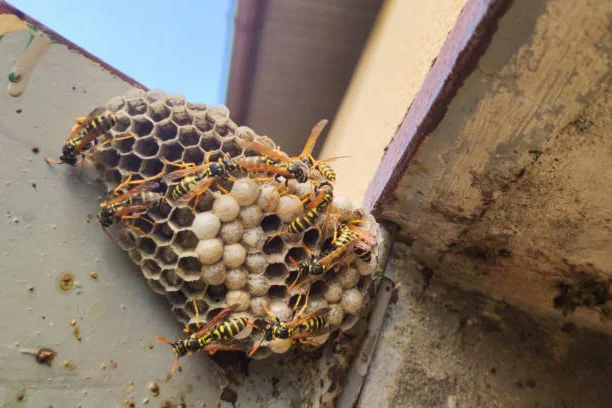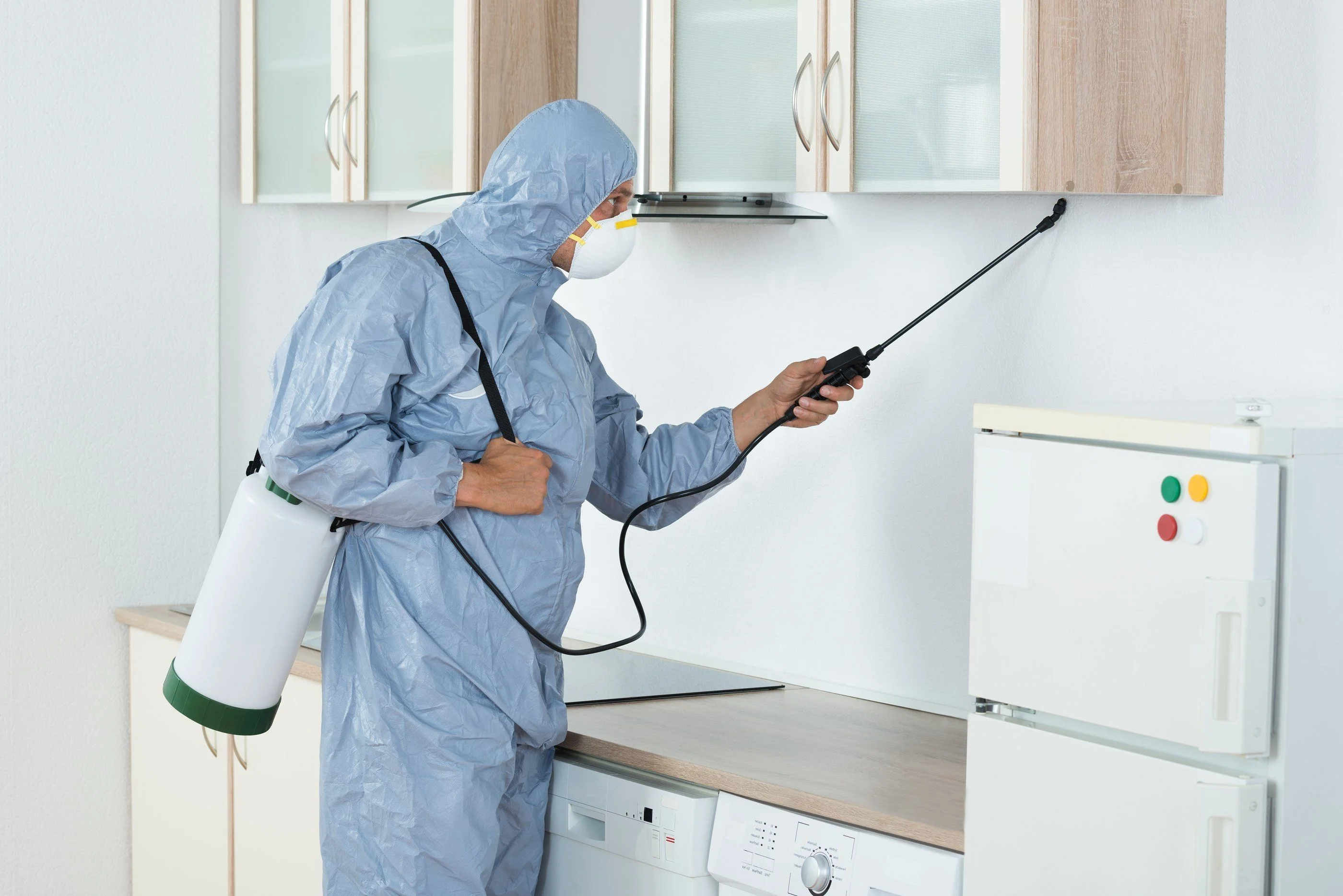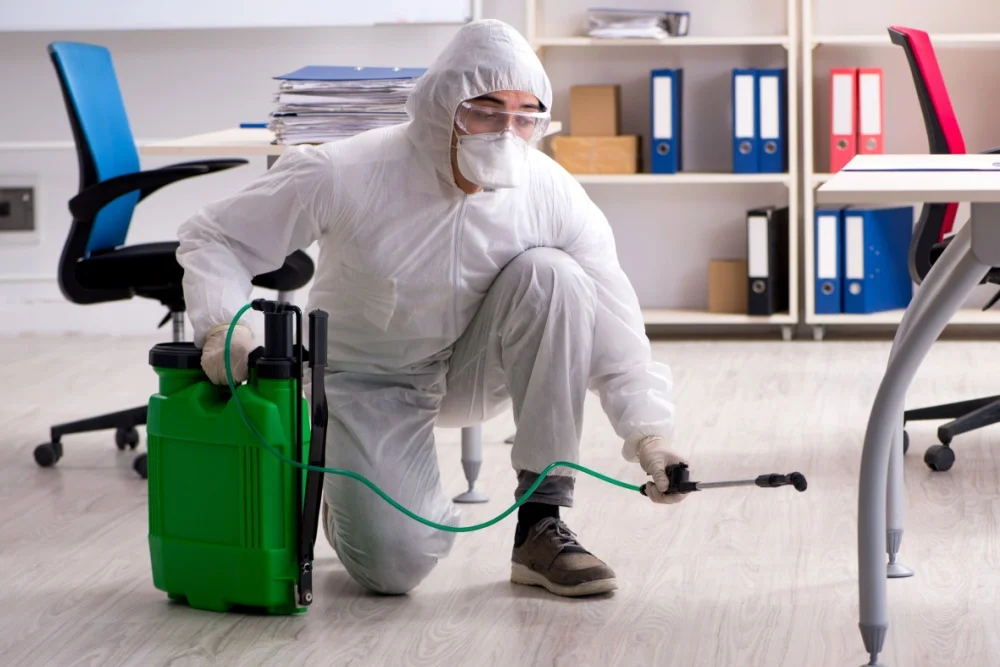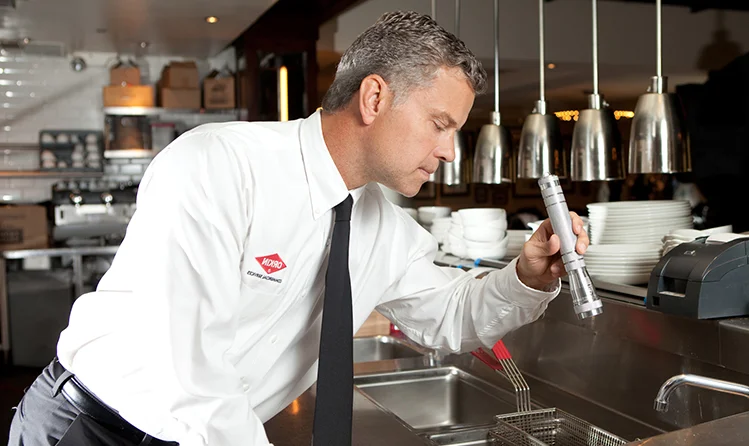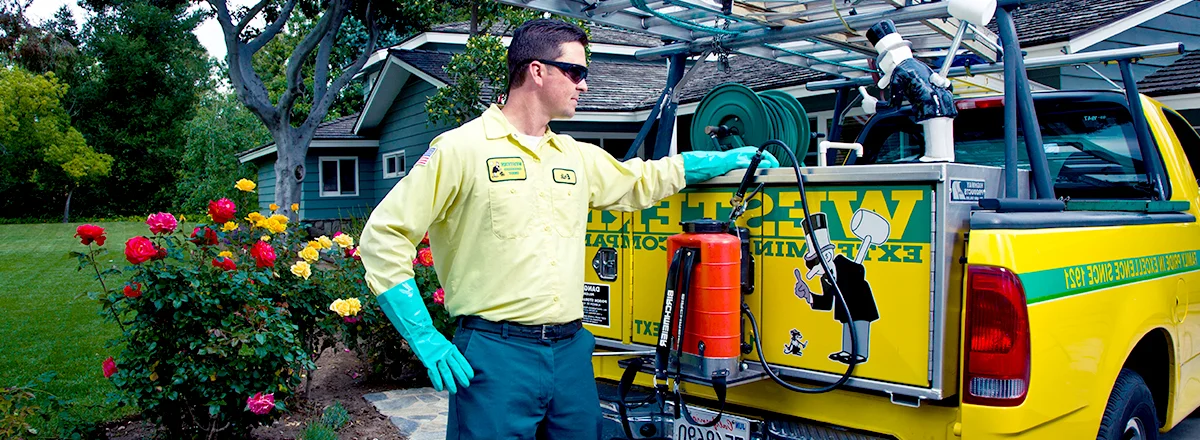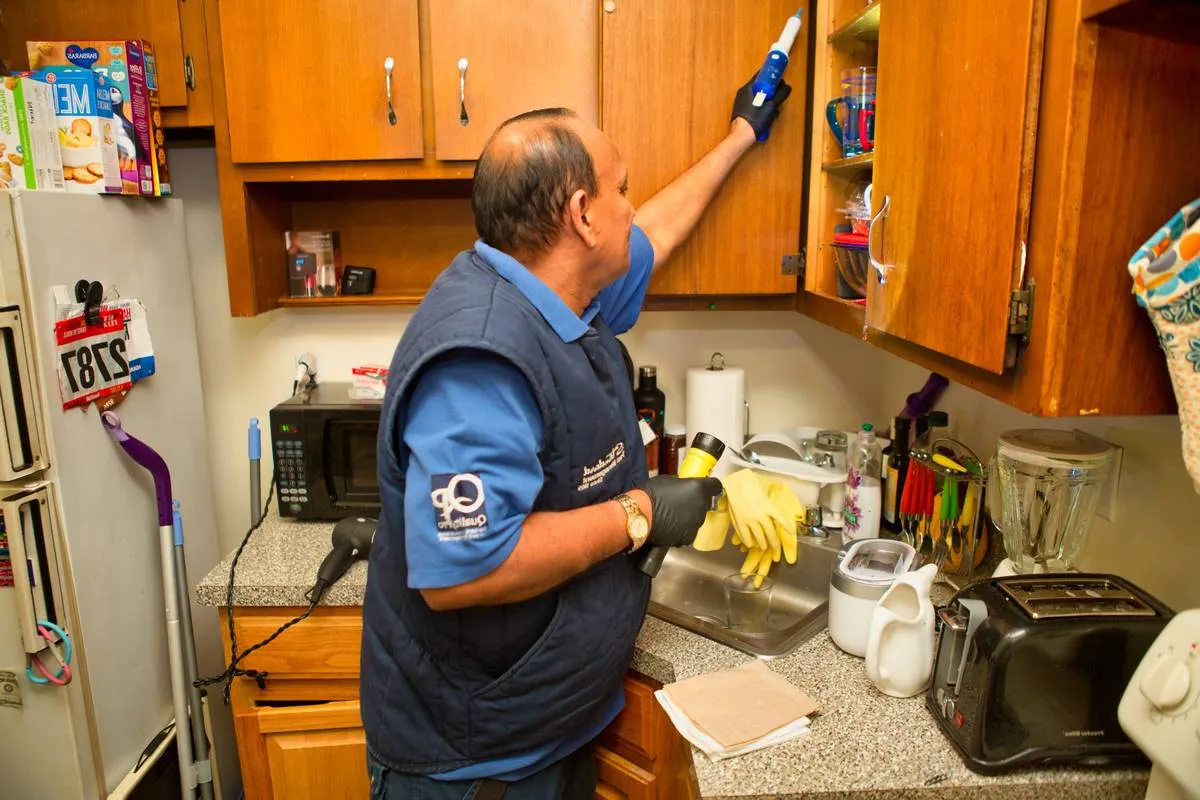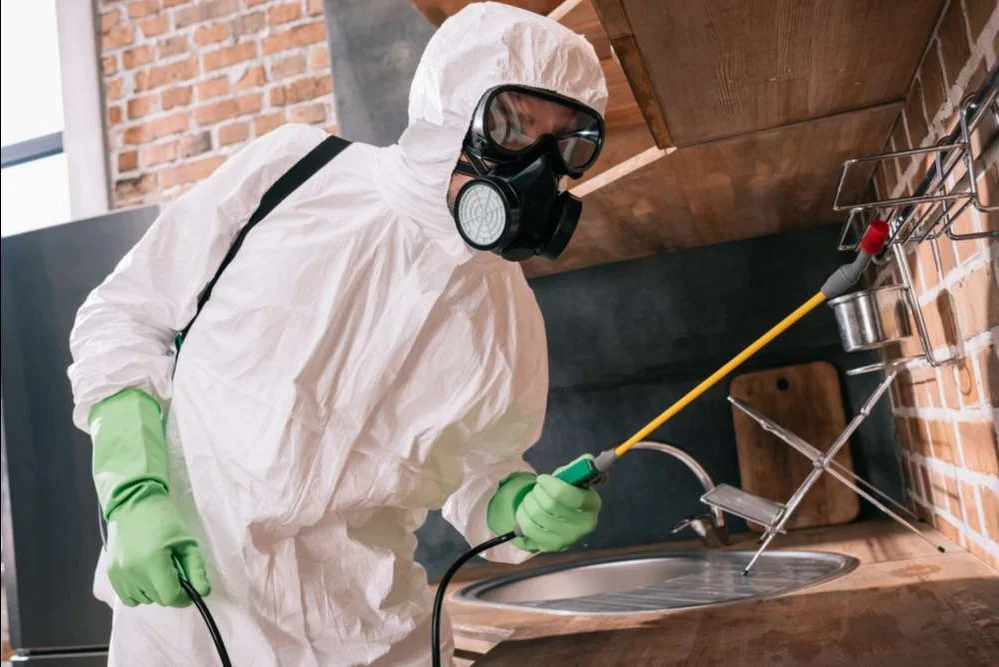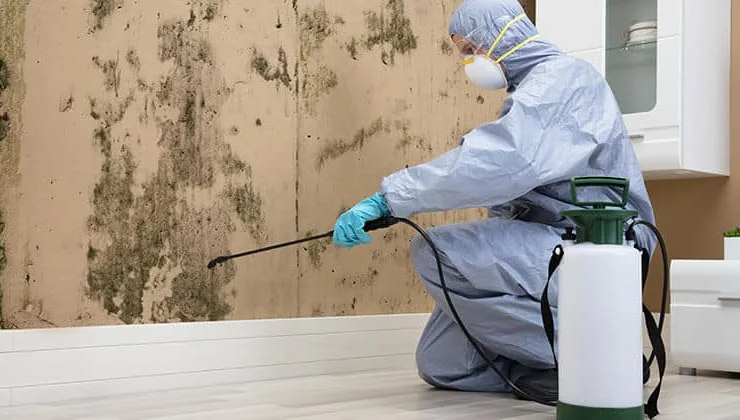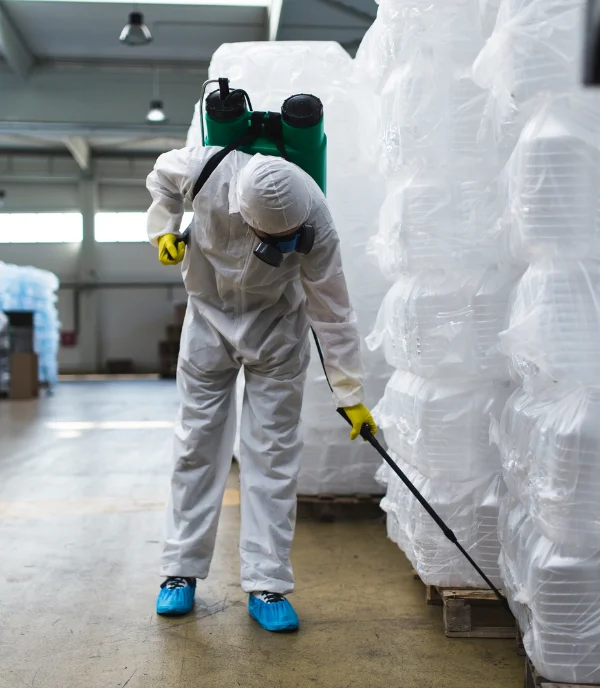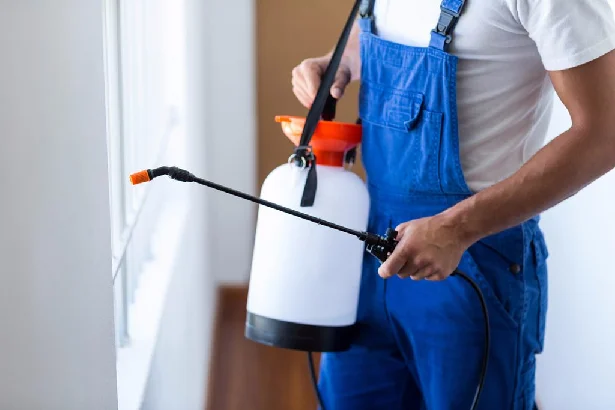University areas present unique pest control challenges that combine
high-density student living with diverse academic facilities, food service
operations, and the dynamic lifestyle patterns that characterize campus
communities. From dormitories housing hundreds of students to research
laboratories requiring sterile environments, university campuses create
complex pest management scenarios involving multiple building types,
varied occupancy patterns, and specialized facility requirements. The
combination of student behaviors, food storage practices, and high population
turnover creates ideal conditions for pest establishment and rapid spread
throughout interconnected campus facilities, making university pest control
a specialized field requiring deep understanding of academic environments
and student community dynamics.
Successful campus pest management requires expertise in both traditional
pest control science and the unique operational requirements of higher
education institutions. Professional exterminators who specialize
in university environments understand how semester schedules, student
move-in periods, dining hall operations, and academic facility requirements
create distinctive pest pressure patterns and management challenges throughout
the academic year. In this comprehensive guide, we'll explore proven
strategies for protecting university communities using eco-friendly pest solutions
that maintain safe learning environments while accommodating the diverse
needs of students, faculty, staff, and visitors who depend on pest-free
campus facilities for education, research, and campus life activities.
Protecting your university community from campus pest challenges? Our
campus specialists provide emergency pest control
24/7 and comprehensive
residential pest protection designed for student housing and academic facilities.
Get campus-wide solutions now!
Unique Pest Control Challenges in University Areas
University environments create distinctive pest management challenges
that result from the complex interaction of high-density living, diverse
facility types, and dynamic student community behaviors. Understanding
these unique factors is essential for effective university pest control:
-
High-density student housing Dormitories, residence halls,
and student apartments pack hundreds of young adults into close
living quarters with shared kitchens, bathrooms, and common areas
that create concentrated food sources and ideal pest breeding environments.
-
Irregular lifestyle patterns Student schedules involving late-night
studying, frequent snacking, irregular meal times, and relaxed cleanliness
standards create continuous food availability and sanitation challenges
that support persistent pest populations throughout campus housing.
-
Frequent population turnover Semester-based move-ins and move-outs,
summer breaks, and academic year transitions create opportunities
for pest introduction through personal belongings while leaving
vacant spaces that can become pest harborage areas.
-
Diverse facility types University campuses include dormitories,
dining halls, laboratories, libraries, administrative buildings,
recreational facilities, and maintenance areas, each with unique
pest management requirements and interconnected systems.
-
Food service complexity Large-scale dining operations, multiple
food courts, coffee shops, and convenience stores create abundant
food sources and waste streams that require intensive management
to prevent pest attraction and establishment.
-
Research facility requirements Laboratories, animal facilities,
and research spaces require sterile environments and specialized
pest management approaches that don't interfere with academic research
or compromise scientific integrity.
These factors make specialized pest prevention strategies essential
for university areas. Successful programs must address both the immediate
campus facility needs and the broader community impact of university
operations on surrounding residential and commercial properties throughout
the academic year cycle.
Common Pests in University Campus Areas
University campus environments support diverse pest populations that
exploit both the high-density living conditions and the varied facility
types characteristic of academic communities. Understanding these common
campus pests is crucial for developing effective protection strategies:
Rodents
Professional rodent management in campus student housing
House mice and Norway rats thrive in university environments,
exploiting the abundant food sources, warm shelter, and numerous
hiding places found throughout dormitories, dining facilities,
and academic buildings. The combination of student food storage
practices and building connectivity creates ideal conditions for
rodent population establishment and rapid spread across campus.
Rodent control in university settings requires comprehensive
approaches that address both the immediate building needs and
the campus-wide connectivity that allows rodents to move freely
between dormitories, dining halls, and academic facilities throughout
the interconnected university infrastructure.
Cockroaches
Professional cockroach management in campus dining facility
German cockroaches are persistent problems in university dormitories
and dining facilities, thriving in the warm, humid conditions
created by shared kitchens, bathrooms, and food preparation areas.
The high population density and continuous food availability support
large cockroach populations that can spread rapidly through interconnected
residence hall systems.
Cockroach in kitchen facilities and dining areas requires
specialized management approaches that address the unique challenges
of high-volume food service operations while maintaining the sanitation
standards necessary for student health and regulatory compliance
throughout campus food service systems.
Bed Bugs
Emergency bed bug response in student housing facility
Bed bugs are significant concerns in university housing due to
the high student turnover, frequent travel, and shared living
spaces that facilitate bed bug introduction and spread. Dormitories,
residence halls, and student apartments provide ideal conditions
for bed bug establishment and rapid dispersal throughout multi-floor
housing complexes.
Urgent pest removal for bed bugs in university settings
often requires immediate response to prevent spread throughout
residence hall systems and protect the health and comfort of
student populations who may have limited resources for dealing
with pest-related housing issues.
Ants
Various ant species commonly invade university facilities, attracted
by the abundant food sources in dormitories, dining halls, and student
common areas. Sugar ants often establish trails throughout residence
halls following spilled beverages and snack foods, while carpenter
ants may infest older campus buildings with moisture issues.
Flying Insects
Fruit flies, drain flies, and other small flying insects thrive in
university environments due to poor sanitation in student areas,
overflowing trash receptacles, and the numerous drains and moisture
sources found throughout dormitories and food service facilities.
Stored Product Pests
Indian meal moths, flour beetles, and other pantry pests commonly
infest student food storage areas, dormitory kitchens, and campus
food service facilities where bulk food storage and student snack
accumulation create ideal breeding conditions.
Occasional Invaders
Spiders, silverfish, centipedes, and other occasional invaders frequently
enter dormitories and academic buildings through the numerous entry
points created by high traffic volumes and frequent door usage throughout
busy campus facilities.
Urban Wildlife
Squirrels, pigeons, and other urban wildlife often establish populations
around university campuses, attracted by food waste from outdoor dining
areas and student activities, potentially creating sanitation issues
and property damage around campus facilities.
Laboratory-Specific Pests
Research facilities may face contamination from escaped research animals,
pests attracted to laboratory food sources, or insects that could
compromise sterile research environments and experimental integrity.
Student Housing and Dormitory Pest Management
Student housing facilities require specialized residential pest treatment
approaches that address the unique challenges of high-density living,
shared facilities, and the diverse cleanliness standards and lifestyle
patterns of college students. Professional dormitory pest management
combines traditional residential techniques with institutional-scale
approaches that can effectively manage pest pressure across large
student populations.
Residence hall pest management emphasizes prevention through education,
systematic monitoring throughout interconnected living spaces, and
rapid response capabilities that can address pest problems before
they spread throughout multi-floor dormitory complexes and affect
large numbers of students.
Dormitory-Specific Challenges
-
Shared living space management Common kitchens, bathrooms,
lounges, and study areas create concentrated pest pressure points
that require intensive monitoring and maintenance to prevent pest
establishment and spread throughout dormitory systems.
-
Student behavior coordination Pest prevention programs must
account for varied student cleanliness standards, irregular schedules,
and lifestyle practices that can create pest attraction and harborage
opportunities throughout residence hall environments.
-
Move-in/move-out management Semester transitions create massive
opportunities for pest introduction while also providing opportunities
for intensive cleaning and pest prevention activities during vacancy
periods.
-
Multi-floor connectivity Residence halls often feature connected
utility systems, stairwells, and common areas that allow rapid pest
movement between floors and wings, requiring comprehensive building-wide
management approaches.
Student Education and Cooperation
Successful dormitory pest management includes comprehensive student
education programs that help residents understand their role in pest
prevention while providing practical guidance for maintaining pest-free
living spaces within the constraints of student budgets and lifestyles.
Health and Safety Coordination
Student housing pest management coordinates with campus health services,
student life departments, and residential advisors to ensure that
pest control activities support student wellbeing and academic success
throughout the campus residential experience.
Academic Facility and Laboratory Protection
Academic facilities require specialized pest prevention in offices
and laboratory environments that maintain sterile conditions necessary
for research while protecting valuable equipment, documents, and
experimental materials from pest damage. University pest management
must balance effective pest control with the specialized requirements
of academic and research environments.
Laboratory and academic facility protection emphasizes prevention-based
approaches that maintain research integrity while providing comprehensive
pest management throughout diverse campus facilities including
classrooms, laboratories, libraries, and administrative buildings.
Research Facility Requirements
-
Sterile environment maintenance Laboratories, clean rooms,
and research facilities require pest management approaches that
maintain sterile conditions without compromising ongoing research
or experimental integrity.
-
Equipment and material protection Valuable research equipment,
scientific instruments, and experimental materials need protection
from pest damage while maintaining accessibility for academic use.
-
Chemical compatibility Pest control products and methods
must be compatible with research chemicals, laboratory procedures,
and scientific equipment to prevent interference with academic work.
-
Documentation and compliance Research facilities often require
detailed documentation of pest management activities to support
research protocols, regulatory compliance, and grant requirements.
Library and Study Area Protection
Libraries, study halls, and academic buildings require pest management
that protects valuable books, documents, and educational materials
while maintaining quiet, comfortable environments necessary for student
learning and academic research activities.
Administrative Building Management
University administrative facilities need professional pest management
that maintains business-like environments while accommodating the
high traffic volumes and diverse visitor patterns characteristic of
campus administrative and student service facilities.
Campus Food Service and Dining Facility Management
University dining facilities require specialized restaurant pest inspection
and food service pest management that addresses the unique challenges
of high-volume student dining operations. Campus food service creates
massive pest pressure through large-scale food preparation, service,
and waste generation that requires intensive management to maintain
health code compliance and student safety.
Campus dining pest management combines commercial food service
expertise with institutional-scale approaches that can effectively
manage the pest pressure created by serving thousands of meals
daily while maintaining the health and safety standards required
for student dining operations.
Large-Scale Food Service Challenges
-
High-volume operations Campus dining halls serve thousands
of students daily, creating massive food waste streams and continuous
cleaning challenges that require intensive pest management coordination.
-
Multiple service locations Universities often operate numerous
dining facilities, coffee shops, convenience stores, and food courts
that require coordinated pest management across diverse food service
environments.
-
Student worker management Food service operations often employ
students who may have limited food safety experience, requiring
enhanced training and supervision to maintain pest prevention standards.
-
Extended operating hours Many campus dining facilities operate
extended hours or 24/7 service to accommodate student schedules,
requiring pest management approaches that work around continuous
operations.
Health Code Compliance
Campus food service facilities must maintain strict health code compliance
while managing the unique challenges of institutional food service,
requiring specialized pest management approaches that support regulatory
compliance without disrupting essential student dining services.
Waste Management Coordination
Large-scale campus dining operations generate massive waste streams
that require intensive coordination between pest management and waste
handling systems to prevent pest attraction and establishment around
campus food service facilities.
Protect your campus community with comprehensive university pest management.
From student housing to research facilities, our campus specialists
provide complete residential pest protection and institutional
solutions – schedule your campus assessment today!
Seasonal Campus Pest Management
Spring Semester (January-May)
- Post-winter pest emergence and activity increase
- Spring break travel pest introduction risks
- End-of-semester move-outs and cleaning opportunities
- Increased outdoor campus activity and food waste
Focus: Comprehensive campus-wide prevention and
preparation for summer break vacancy period pest management.
Summer Break (June-August)
- Reduced occupancy provides intensive treatment opportunities
- Summer program and conference guest pest introduction
- Peak outdoor pest activity around campus facilities
- Construction and renovation project pest displacement
Focus: Intensive facility maintenance and preparation
for fall semester student population return.
Fall Semester (August-December)
- Massive student move-in pest introduction risks
- Peak campus food service operations
- Pest migration indoors for winter shelter
- Academic year activity patterns establish
Focus: Comprehensive monitoring and rapid response
during peak campus activity and student population periods.
Winter Break (December-January)
- Reduced occupancy allows intensive treatments
- Holiday break travel and return pest risks
- Concentrated indoor pest activity in heated buildings
- Preparation for spring semester return
Focus: Facility maintenance and preparation for
spring semester student population return.
Student Education and Community Engagement
Community education session for university students and staff
Successful university pest management requires comprehensive student
education and community engagement programs that help students
understand their role in campus-wide pest prevention efforts.
Family-owned exterminator services often excel at building
personal connections with student communities and providing education
that creates collaborative approaches to maintaining pest-free
campus environments.
Student education programs help create a campus culture of pest
prevention awareness while providing practical guidance that fits
student lifestyles, budgets, and living situations throughout
their university experience.
Comprehensive Education Programs
-
Orientation integration New student orientation programs
include pest prevention education as part of campus life and housing
information to establish good practices from the beginning of the
university experience.
-
Residence hall programming Regular educational programs in
dormitories and residence halls provide ongoing pest prevention
education through resident advisor programming and floor meetings.
-
Academic integration Pest management education may be integrated
into relevant academic courses including biology, public health,
environmental science, and facilities management programs.
-
Peer education programs Training student leaders to provide
peer-to-peer pest prevention education creates sustainable campus-wide
awareness and engagement throughout the student community.
Practical Student Guidance
Education programs provide practical guidance about food storage,
cleanliness standards, early detection, and reporting procedures that
work within student budgets and lifestyle constraints while supporting
effective campus-wide pest management efforts.
Community Partnership Building
Student engagement programs build partnerships between pest management
professionals, university administration, and student communities
to create collaborative approaches that address pest challenges while
supporting student success and campus community goals.
Research Facility and Laboratory Compliance
University research facilities require specialized pest management
that maintains the sterile environments and regulatory compliance
necessary for academic research while protecting valuable equipment
and experimental materials. IPM technician house approaches
adapted for laboratory environments emphasize prevention and minimal
intervention methods that support research integrity.
Research facility pest management combines scientific precision
with practical pest control to create environments that support
cutting-edge research while maintaining the pest-free conditions
necessary for experimental validity and regulatory compliance
throughout diverse academic research programs.
Laboratory-Specific Requirements
-
Sterile environment maintenance Research laboratories require
pest management approaches that maintain sterile conditions without
introducing contaminants that could compromise experimental results
or research integrity.
-
Chemical compatibility assessment All pest control products
and methods must be evaluated for compatibility with research chemicals,
laboratory procedures, and sensitive scientific equipment used
throughout university research facilities.
-
Research animal facility protection Animal research facilities
require specialized pest management that prevents contamination
of research animals while maintaining biosecurity and regulatory
compliance standards.
-
Documentation and validation Research facilities often require
extensive documentation of pest management activities to support
research protocols, grant compliance, and regulatory requirements.
Equipment and Material Protection
Valuable research equipment, scientific instruments, and experimental
materials require protection from pest damage while maintaining accessibility
for research use and compliance with manufacturer specifications
and regulatory requirements.
Regulatory Compliance Support
University research facilities must comply with numerous regulatory
requirements from agencies including NIH, NSF, EPA, and USDA that
govern research activities and facility management, requiring pest
management approaches that support rather than compromise regulatory
compliance efforts.
Campus-Wide Pest Management Coordination
University campuses benefit from coordinated pest management approaches
that address the interconnected nature of campus facilities while
accommodating the diverse needs of student housing, academic buildings,
food service operations, and research facilities throughout the
institutional community.
Institutional Integration
-
Multi-department coordination Campus pest management requires
coordination between housing, dining services, facilities management,
academic departments, and student life to ensure comprehensive
coverage and consistent standards.
-
Budget and resource planning University pest management programs
require long-term budget planning and resource allocation that
accommodates the cyclical nature of academic calendars and institutional
priorities.
-
Policy development and implementation Campus-wide pest management
policies ensure consistent approaches across diverse facility types
while accommodating the unique requirements of different campus
operations and departments.
-
Crisis response coordination Emergency pest situations require
coordinated response between pest management professionals, university
administration, and relevant campus departments to protect student
health and maintain institutional operations.
Community Impact Management
University pest management programs coordinate with surrounding residential
and commercial properties to address the broader community impact
of campus operations while maintaining positive town-gown relationships
and supporting local economic development goals.
Sustainability Integration
Many universities prioritize sustainability and environmental responsibility,
requiring pest management approaches that support institutional sustainability
goals while maintaining effective pest control throughout diverse campus environments and community contexts.
Eco-Friendly Pest Solutions for Campus Environments
University communities increasingly prioritize environmental sustainability
and student health, making eco-friendly pest control approaches
essential for campus pest management programs. Green pest management
strategies align with institutional sustainability goals while
providing effective protection for students, faculty, and staff
throughout diverse campus environments and community spaces.
Sustainable campus pest management combines cutting-edge green
technologies with proven prevention strategies to create comprehensive
programs that protect campus communities while minimizing environmental
impact and supporting institutional sustainability commitments
throughout all aspects of university operations.
Integrated Pest Management for Universities
Campus IPM in garden and landscape areas demonstrates how
comprehensive integrated pest management approaches can maintain
beautiful, functional campus grounds while minimizing pesticide
use and supporting campus sustainability goals. University IPM
programs serve as living laboratories that demonstrate environmental
stewardship while protecting campus communities.
University IPM programs often integrate with academic curricula,
providing hands-on learning opportunities for students in environmental
science, agriculture, and related fields while demonstrating
practical applications of sustainable pest management principles
throughout campus operations.
-
Prevention-focused strategies Campus IPM emphasizes structural
improvements, sanitation enhancement, and habitat modification
that prevent pest establishment rather than relying primarily
on chemical interventions throughout campus facilities.
-
Biological control integration University programs may incorporate
beneficial insects, microbial controls, and other biological agents
that provide targeted pest management while supporting campus
biodiversity and ecological balance.
-
Minimal-impact treatments When interventions are necessary,
campus programs prioritize low-toxicity, targeted applications
that minimize exposure risks for students, faculty, and campus
wildlife populations.
-
Monitoring and assessment Comprehensive monitoring programs
track pest populations, treatment effectiveness, and environmental
impact to ensure continuous improvement and adaptive management
throughout campus pest control programs.
Student Health and Safety Priority
Campus eco-friendly pest management prioritizes student health and
safety while accommodating the diverse health conditions, chemical
sensitivities, and lifestyle factors that characterize university
communities. Green approaches reduce exposure risks while maintaining
effective pest control throughout campus living and learning environments.
Academic Integration Opportunities
University pest management programs often provide academic integration
opportunities that allow students to participate in research, monitoring,
and implementation activities that support both educational goals
and practical pest management outcomes throughout campus communities.
Emergency Response and Crisis Management
University environments require rapid emergency pest control visit
capabilities that can address urgent pest situations without
disrupting critical academic operations or compromising student
safety and comfort. Campus emergency response protocols ensure
that pest crises receive immediate attention while maintaining
institutional continuity and student welfare.
Emergency pest management for universities combines rapid response
capabilities with institutional coordination to address urgent
situations while minimizing disruption to academic schedules,
research activities, and student life throughout campus communities
and surrounding areas.
24/7 Response Capabilities
University pest emergencies often occur outside normal business
hours, requiring 24 hour pest control availability that
can respond to urgent situations during evenings, weekends, and
holiday periods when campus populations may be reduced but essential
services must continue operating. Round-the-clock availability
ensures student safety and institutional protection.
After-hours emergency response coordinates with university security,
facilities management, and resident advisors to ensure safe,
effective interventions that protect campus communities while
maintaining institutional security and operational procedures
throughout emergency response activities.
Crisis Communication Protocols
-
Student notification systems Emergency pest situations require
clear communication with affected student populations, including
temporary relocation procedures, safety precautions, and timeline
information for resolution activities.
-
Academic continuity planning Emergency responses coordinate
with academic departments to minimize disruption to classes, research,
and other educational activities while ensuring effective pest
management interventions.
-
Health and safety coordination Emergency pest management
coordinates with campus health services, environmental health,
and safety departments to ensure comprehensive protection for
campus communities throughout crisis response activities.
-
Media and public relations support Serious pest emergencies
may require coordination with university communications and public
relations departments to manage public information and maintain
institutional reputation throughout crisis management.
Rapid Assessment and Containment
Emergency pest response begins with rapid assessment to determine
the scope, severity, and appropriate response level for urgent situations.
Containment strategies prevent pest spread while comprehensive treatment
plans address both immediate needs and long-term prevention throughout
affected campus areas.
Recovery and Prevention Planning
Post-emergency recovery includes comprehensive facility restoration,
prevention enhancement, and monitoring programs that reduce the likelihood
of future emergencies while supporting campus community confidence
and institutional stability throughout recovery periods.
Commercial Campus Pest Control Services
University campuses require specialized commercial pest control service
approaches that address the unique scale, complexity, and regulatory
requirements of institutional environments. Campus commercial
services combine residential-style approaches for housing with
industrial-scale methods for large facilities, creating comprehensive
programs that protect diverse campus operations and communities.
Commercial campus pest management addresses the institutional
needs of universities while accommodating the diverse facility
types, operational schedules, and community requirements that
characterize modern university campuses and surrounding community
areas throughout academic and calendar years.
Institutional-Scale Service Delivery
-
Multi-facility coordination Campus commercial services coordinate
pest management across dozens or hundreds of buildings, each with
unique requirements, schedules, and operational considerations
that require specialized management approaches.
-
Scalable service models University pest management programs
must scale service delivery from individual dormitory rooms to
massive dining facilities and research complexes while maintaining
consistent quality and effectiveness throughout.
-
Contract and procurement management Institutional pest management
often involves complex contracting processes, competitive bidding,
and long-term service agreements that require experienced commercial
service providers familiar with institutional procurement.
-
Performance monitoring and reporting Universities require
comprehensive documentation, performance metrics, and regular
reporting that demonstrate service effectiveness and support institutional
accountability and continuous improvement efforts.
Regulatory Compliance and Standards
University commercial pest management must comply with numerous regulatory
requirements including health department standards, research facility
regulations, federal compliance mandates, and institutional policies
that govern campus operations and community protection throughout
academic years.
Budget and Resource Optimization
Commercial campus services optimize budget allocation and resource
utilization to provide maximum pest protection value while accommodating
institutional budget constraints and demonstrating return on investment
through reduced pest damage, improved health outcomes, and enhanced
campus quality of life.
Selecting Professional Campus Pest Management
Universities benefit from professional pest control service
providers who understand the unique challenges, regulatory requirements,
and community dynamics that characterize campus environments.
Professional campus pest management combines technical expertise
with institutional experience to provide comprehensive solutions
for complex university pest management challenges.
Selecting appropriate professional services requires evaluation
of institutional experience, technical capabilities, service
delivery models, and community engagement approaches that align
with university values and operational requirements throughout
diverse campus environments and community contexts.
University-Specific Expertise
-
Campus environment experience Professional services should
demonstrate extensive experience with university environments,
including student housing, academic facilities, research laboratories,
and food service operations throughout diverse institutional contexts.
-
Student community understanding Effective campus pest management
requires understanding of student lifestyles, academic schedules,
and community dynamics that influence pest pressure and management
opportunities throughout university environments.
-
Institutional compliance knowledge Professional services
must understand the complex regulatory environment governing university
operations, including health codes, research facility requirements,
and federal compliance mandates affecting campus operations.
-
Emergency response capabilities University pest management
requires providers who can respond rapidly to emergency situations
while coordinating with institutional crisis management protocols
and maintaining campus safety and security standards.
Service Integration and Coordination
Professional campus pest management integrates with existing institutional
systems including facilities management, student services, academic
operations, and community relations to provide seamless service
delivery that supports rather than disrupts university operations
and campus life activities.
Quality Assurance and Accountability
University pest management requires robust quality assurance systems,
regular performance monitoring, and clear accountability measures
that ensure consistent service delivery while supporting institutional
goals for student success and campus community wellbeing throughout
academic years.
Your campus community deserves expert pest protection that supports
academic excellence and student success. Trust our university-specialized
team for comprehensive commercial pest control service solutions –
schedule your campus consultation today!
Benefits for Campus Communities
Comprehensive university pest management provides numerous benefits
that enhance campus life quality while supporting institutional goals
for student success, academic excellence, and community engagement
throughout diverse university environments and surrounding areas.
Student Health and Wellbeing
-
Improved living conditions Effective pest management creates
healthier, more comfortable living environments that support student
academic success and personal wellbeing throughout their university
experience.
-
Reduced health risks Comprehensive pest control minimizes
disease transmission risks, allergic reactions, and other health
impacts that can interfere with student academic performance and
campus life participation.
-
Enhanced sleep quality Pest-free dormitories and residence
halls provide better sleep environments that support student academic
performance and overall health throughout demanding academic schedules.
-
Stress reduction Eliminating pest concerns reduces student
stress and anxiety, allowing greater focus on academic achievement
and campus community engagement throughout university experiences.
Academic Environment Protection
Pest-free academic facilities support learning, research, and teaching
activities by eliminating distractions and protecting valuable educational
resources while maintaining the professional environments necessary
for academic excellence and institutional success.
Institutional Reputation Enhancement
Effective campus pest management supports institutional reputation
by demonstrating commitment to student welfare, facility quality,
and operational excellence that enhances university competitiveness
and community standing throughout regional and national education
contexts.
Community Relations Improvement
Campus pest management programs often extend benefits to surrounding
communities by reducing pest pressure on neighboring properties
while demonstrating university commitment to being good community
neighbors and regional economic development partners.
What University Communities Say
"The comprehensive pest management program transformed our residence
halls from constant complaint generators to model student housing.
Our student satisfaction scores improved dramatically after implementing
professional campus-wide pest control."
- Dr. Sarah M., Housing Director
★★★★★
"As a research facility manager, sterile environments are critical
for our work. The specialized laboratory pest management program
maintains our research integrity while providing effective pest
control that doesn't interfere with our scientific operations."
- James R., Research Facilities Manager
★★★★★
"Our campus dining operations serve 15,000 meals daily, and pest
control is absolutely critical for health code compliance. The
professional team provides discreet, effective service that keeps
our facilities clean and our students safe."
- Maria L., Dining Services Director
★★★★★
Frequently Asked Questions
How do you coordinate pest control across an entire university campus?
Campus-wide pest management requires comprehensive coordination
between multiple university departments including housing, dining
services, facilities management, and academic units. We develop
integrated service schedules that accommodate academic calendars,
student activities, and facility operations while maintaining
consistent pest protection throughout all campus areas. Our
coordination includes detailed communication protocols, emergency
response procedures, and regular progress reporting to ensure
seamless service delivery across diverse campus environments.
Are pest control treatments safe for students and research activities?
Student safety and research integrity are our top priorities.
We use eco-friendly, low-toxicity treatments that are specifically
selected for university environments with high student populations.
For research facilities, we coordinate closely with laboratory
managers to ensure treatments don't interfere with ongoing research
or compromise sterile environments. All treatments comply with
university safety protocols and provide advance notification
to affected areas with appropriate reentry timelines.
How do you handle pest emergencies during critical academic periods?
University pest emergencies require immediate response regardless
of timing. We provide 24/7 emergency services that coordinate
with university security and facilities management to address
urgent situations during finals weeks, orientation periods,
and other critical academic times. Our emergency protocols
prioritize student safety and academic continuity while providing
rapid, effective pest control interventions that minimize disruption
to essential university operations and student activities.
What makes university pest control different from regular commercial services?
University environments combine the complexity of commercial
facilities with the intimacy of residential communities, creating
unique pest management challenges. We understand student lifestyles,
academic schedules, research facility requirements, and institutional
compliance needs that standard commercial services may not address.
Our campus-specialized approach includes student education programs,
semester-based service scheduling, research facility protocols,
and community engagement strategies that create comprehensive
pest management solutions for academic environments.

